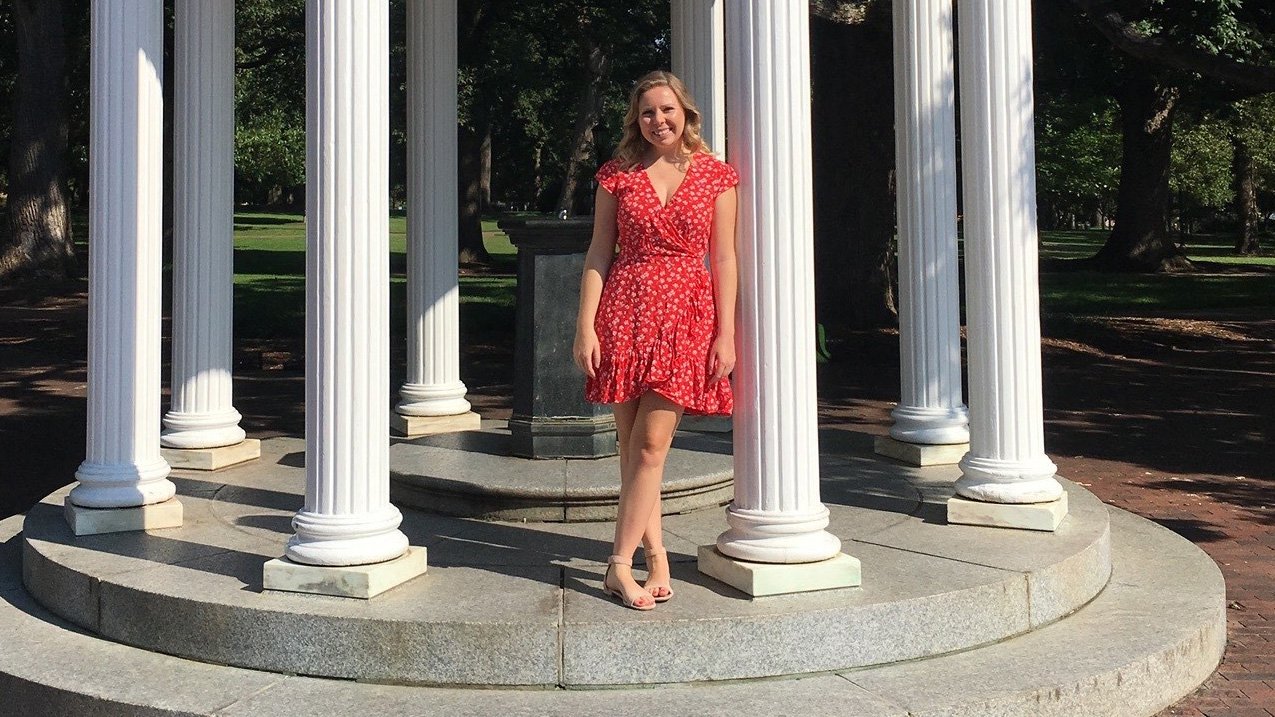By Elvin Walker
It is an exciting but very busy time for 2010 U.S. women’s champion Rachael Flatt.
Since leaving competitive skating a decade ago, the 31-year-old has attacked life with the same gusto as she once did as an athlete. Flatt is currently a doctoral candidate in clinical psychology at the University of North Carolina (UNC) in Chapel Hill and is on track to earn her PhD in August.
The 2010 Olympian has balanced the rigors of earning an advanced degree with a schedule chock full of speaking engagements, volunteer work and as an advocate for positive change in sports with regard to mental health.

“I had spent most of my undergraduate degree thinking I was going to do medical school, and upon graduation and going through the first round of medical school applications, I realized I just did not have it in my heart to go to medical school,” Flatt admitted. “It wasn't quite the right thing for me at that point in time and so I ended up taking a couple of years to think about what I wanted to do.”
During that time, Flatt had the opportunity to get involved with digital mental health research at Stanford that focused primarily on eating disorder interventions for college students. Flooded with what she calls “lightbulb moments,” Flatt’s vision for the future quickly began to come into focus.
“With so many travel demands that athletes often face and given the specific kinds of pressures that related to sport around mental health, it became clear to me that athletes could benefit from some very tailored digital tools,” she explained. “I would be able to add a lot of value as someone with an athlete background and getting trained in clinical psychology and being able to merge those two interests and experiences to provide some value both from the research and clinical front.”
In the digital marketplace, Flatt’s research involved studying a globally used self-monitoring app that tracks behaviors related to eating disorders and adapting it for an Apple watch to collect passive data. That data would then be used in support of curbing behaviors that could ultimately lead the user down the path of an eating disorder.
“It would collect passive heart rate and step data to see if we could predict eating disorders in real time,” Flatt said. “The goal of the foundational study was to eventually be able to predict and intervene on those behaviors in the moment so kind of preventing those behaviors from occurring in the first place.”
As an elite skater, Flatt was faced with extreme highs and lows as she navigated the competitive landscape that she quickly connected to her research at Stanford. She was part of the sport when it was taboo to openly discuss injuries, let alone the mental health challenges that often seep into the life of an athlete in a judged sport. Fortunately, Flatt had her parents, who tried to make sure that she was as normal outside of the sport as possible – they encouraged a healthy diet, going out with friends and having interests outside of the rink. Still, Flatt was not immune to the pressures of competing on such a grand stage.

“There were times when certain body image concerns came up during my competitive career when I certainly could have benefitted from someone who could have helped me to address that head on,” she shared. “Having someone there to make sure that, as a kid growing up in the public eye, I was okay.”
She continued, “The last several years of my career, I was chronically injured and got to a point where I needed to understand what my body was telling me. In many instances, there was a lot of pressure on me for a variety of reasons to compete when I was injured, and it took an immense toll on me because I felt like I couldn’t really talk about it outside of my medical team. I am very grateful that my mom filled kind of a gatekeeping role and I think that really saved me in a lot of ways.”
In spite of some of her own experiences, Flatt does see progress in the sport, especially in the way of the athletes having honest and open discussions about their struggles.
“I look back on for my career – I was told many times in media training not to discuss physical injuries and now we're at a point where athletes are not only discussing their physical health but they're talking about these very important topics around mental health,” she pointed out. “The more we are having open conversations about mental health concerns to the degree that they're appropriate and people feel safe and open to share their experience helps them not to be brushed under a rug and stigmatizing them.”
Flatt is currently closing out her clinical internship at Duke University, where she is focused on eating disorder training with an emphasis on working with those with Avoidant/Restrictive Food Intake Disorder (ARFID). Once she completes that work in July, Flatt heads back to UNC to begin a postdoctoral fellowship that straddles three groups – the UNC Center of Excellence for Eating Disorders, the UNC Suicide Prevention Institute and the Carolina Athletics Mental Health and Performance Psychology Program.
Once her fellowship is complete, Flatt will be eligible to sit in on the national and state licensure exams, and once passed, she will be able to practice officially without having someone who is licensed sign off on her patient notes.
“I am excited about merging all of these interests and I am really lucky that things ended up beautifully for me so that I will be able to complete all of my hours for licensure,” Flatt said.
Within the sports world, Flatt has already started to give back by marrying her experience as an athlete with her intensive studies in psychology. The 2008 World Junior champion has worked closely with U.S. Figure Skating as a member and chair of the Athletes Advisory Committee, helping to ensure compliance with the U.S. Olympic & Paralympic Committee’s (USOPC) federal mandates establishing athlete representation across all committees. She was also one of the first athlete representatives on the USOPC Mental Health Task Force.
“Holy smokes. It was busy,” Flatt said of the task force. “Before the task force, the OPC had a psychology department, but now they have a psychological services team that is comprised of a number of people with different specialties. We helped by shaping the founding principles of what that might look like, we helped to hire the site services director, Jessica Bartley – who is phenomenal at her job – and we helped with the thinking around what digital tools could support a variety of mental health concerns.”
Though she has taken a hiatus from some of her non-school related commitments for now, Flatt plans to make herself available once things begin to calm down. She plans to stay in North Carolina after graduation and spending time with her husband, Eric, with whom she will celebrate her fourth wedding anniversary in August.
“My husband has a job here, so the plan is to stay in North Carolina for now,” Flatt said. “I’ve really enjoyed my advocacy work with U.S. Figure Skating and the USOPC, and I know it's difficult to find positions that are both a clinical and research focused so I may have to be flexible in that regard, but I really do hope that I can do at least two out of those three (advocacy, clinical, and research) in my full-time job.”


